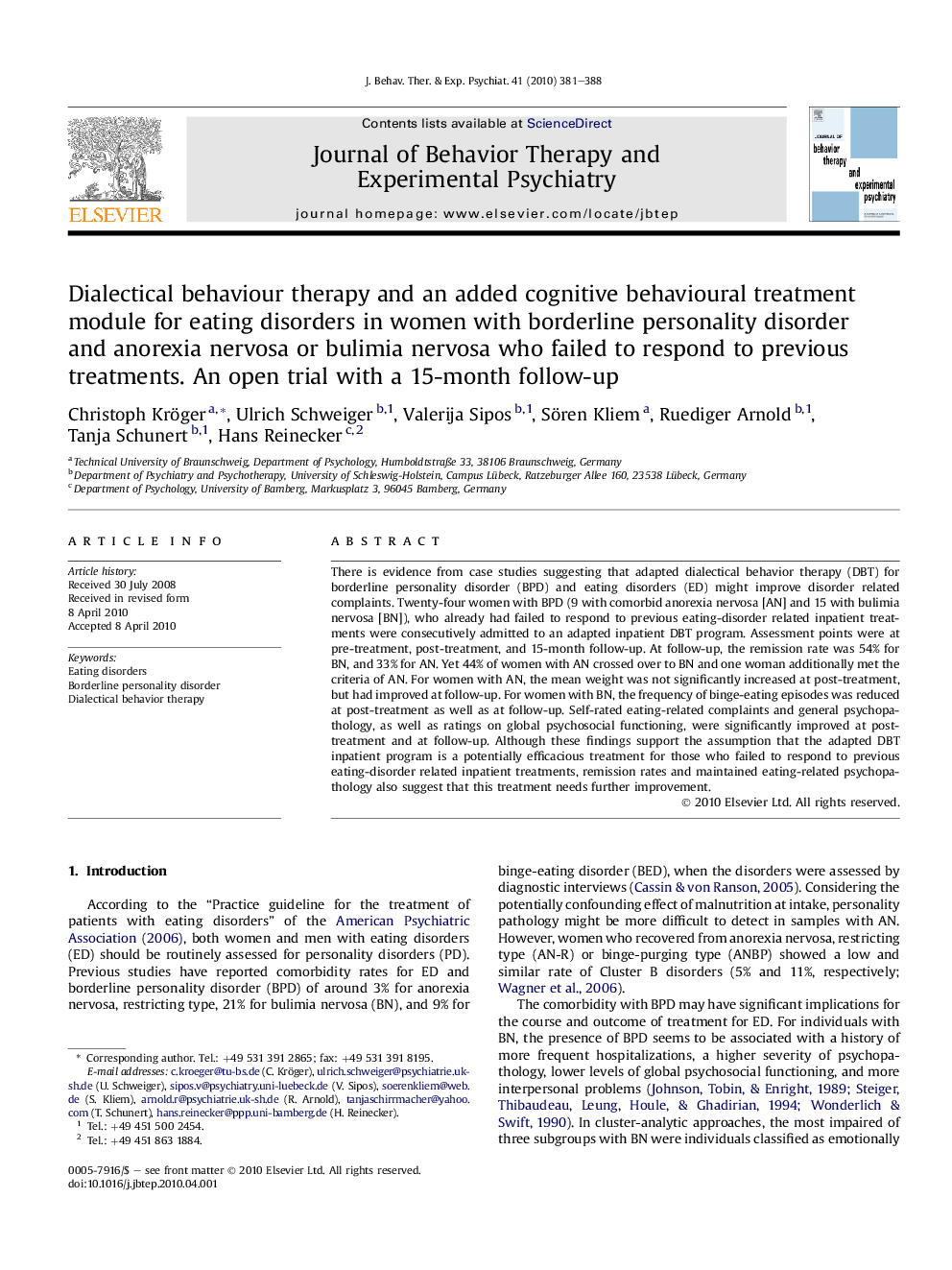ترجمه فارسی عنوان مقاله
رفتار رفتاری دیالکتیک و یک ماژول درمان شناختی رفتار رفتاری برای اختلالات خوردن در زنان مبتلا به اختلال شخصیت مرزی و نارسایی انقباض یا عصب بیلیمی که موفق به پاسخ به درمان های قبلی نشدند. محاکمه باز با یک
عنوان انگلیسی
Dialectical behaviour therapy and an added cognitive behavioural treatment module for eating disorders in women with borderline personality disorder and anorexia nervosa or bulimia nervosa who failed to respond to previous treatments. An open trial with a
| کد مقاله | سال انتشار | تعداد صفحات مقاله انگلیسی |
|---|---|---|
| 71853 | 2010 | 8 صفحه PDF |
منبع

Publisher : Elsevier - Science Direct (الزویر - ساینس دایرکت)
Journal : Journal of Behavior Therapy and Experimental Psychiatry, Volume 41, Issue 4, December 2010, Pages 381–388
ترجمه کلمات کلیدی
اختلالات اشتها، اختلال شخصیت مرزی، درمان رفتار دیالکتیکی
کلمات کلیدی انگلیسی
Eating disorders; Borderline personality disorder; Dialectical behavior therapy

